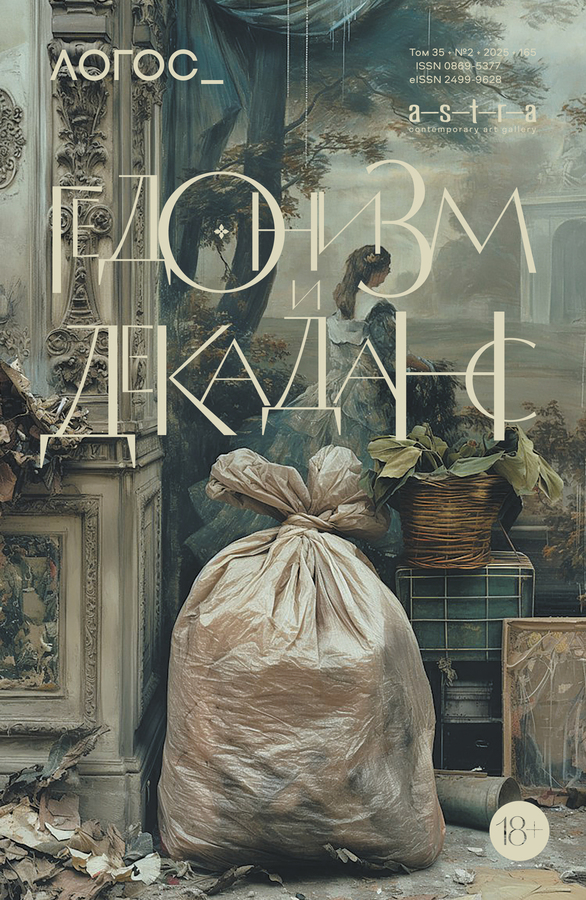Cinematic decadence: the space of the political
- Authors: Davydova O.1
-
Affiliations:
- St. Petersburg National Research University of Information Technologies, Mechanics and Optics (ITMO University)
- Issue: Vol 35, No 2 (2025)
- Pages: 277-288
- Section: DARK PLEASURE
- URL: https://journal-vniispk.ru/0869-5377/article/view/292787
- DOI: https://doi.org/10.17323/0869-5377-2025-2-277-287
- ID: 292787
Cite item
Abstract
The article is devoted to the conceptualization of the notion of “decadence” as a cultural and philosophical phenomenon that does not refer exclusively to one period in the history of cultural development. The text considers decadence as a special mode of distribution of the sensible (Jacques Rancière), characterized by a state of confusion, obsessive connection with the past and the disintegration of the boundaries of ethical and political. Decadence is often regarded as a fundamentally apolitical phenomenon, escapist in nature. The article attempts to challenge this position, since the distribution of the sensible, characteristic of decadence, is a marker of changes to come, even if from within decadent culture they seem unrealizable.
The concept of decadence demonstrates its own heuristic potential for analyzing various cultural phenomena. For an example, the author turns to the Polish cinema of the late 1970s and early 1980s, known as the cinema of moral anxiety, in particular to Andrzej Wajda’s film The Man of Marble (1977). Through this film, the article demonstrates how the aesthetic rupture, or dissensus (Rancière), the impossibility of seeing the present in the past and at the same time their inextricable fusion (Walter Benjamin), paradoxicality (Michael Riffaterre) and the disintegration of the boundaries that provide action with political content within the police order (Rancière), turn out to be manifestations of decadence in a single film.
Full Text
About the authors
Olga Davydova
St. Petersburg National Research University of Information Technologies, Mechanics and Optics (ITMO University)
Author for correspondence.
Email: ol.davydova@inbox.ru
Russian Federation, St. Petersburg
References
- Benjamin W. O poniatii istorii [Über den Begriff der Geschichte]. Uchenie o podobii. Mediaesteticheskie proizvedeniia: sbornik statei [Doctrine of the Similar. Media Aesthetic Works: A Collection of Articles], Moscow, RSUH, 2012.
- Gallope M., Kane B., Rings S., Hepokoski J., Lochhead J., Puri M. J., Currie J. R. Jankélévitch and the Dilemma of Decadence. Journal of the American Musicological Society, 2012, vol. 65, no. 1, pp. 215–256.
- Haltof M. Polish Cinema: A History, New York, Oxford, Berghahn Books, 2002.
- Perrenial Decay: On the Aesthetics and Politics of Decadence (eds L. Constable, M. Potolsky, D. Denisoff), Philadelphia: University of Pennsylvania Press, 1999.
- Rancière J. Emansipirovannyi zritel’ [Le spectateur émancipé], Nizhny Novgorod, Krasnaia lastochka, 2018.
- Rancière J. Razdeliaia chuvstvennoe [Le partage du sensible], Saint Petersburg, EUSP Press, 2007.
- Rancière J. Rethinking Modernity. Diacritics, 2014, vol. 42, no. 3, pp. 6–20.
Supplementary files










